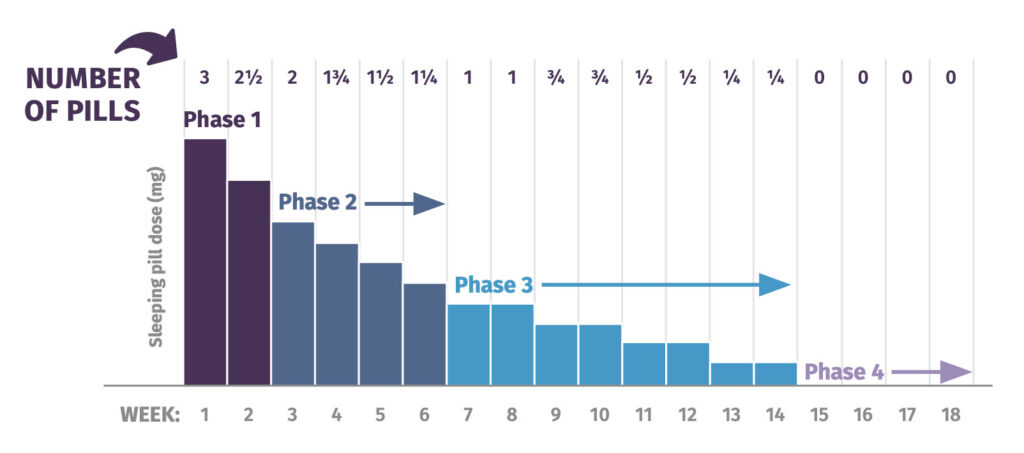Terry’s Story

I was frustrated. I had been using a prescription sleeping pill to treat insomnia on and off for several years. Over the past few months, I had been taking more and more each night. More often than not, I was taking three pills per night, which was still not giving me a good night’s sleep. Whenever I tried to stop the sleeping pill my insomnia returned with a vengeance. I felt like I was in a fog during the day. Naps seemed necessary but only made for more struggles at nighttime. Restarting the sleeping pill helped, but only for a few days. I felt like I was caught in a vicious cycle.
Only later I learned that I was experiencing insomnia as part of my sleeping pill withdrawal syndrome. A good chat with my doctor and pharmacist encouraged me to start to lower my dose gradually and look into something called CBTi. Their advice of a slow dose reduction with regular check-ins was comforting to me.
I was hesitant when I first heard about CBTi. But, after looking into it a little I realized it was what I needed to do. I learned that it was recommended by sleep specialists around the world as “first-line” treatment for insomnia and that I could do it myself without seeing a therapist. I considered my options for starting CBTi by looking at what Sleepwell Recommends. It lists a few books, apps, and websites. I went with one of the recommended books. While I waited for it to come in I got started with the Sleepwell Sleep Diary as my sleeping pill dose was reduced.
I noticed my sleep getting better after just a couple of weeks of using the book. This lifted my spirits. I continued to see my doctor and speak with my pharmacist regularly for guidance and support in stopping the sleeping pill. Both encouraged me to put the CBTi book’s advice in to practice each day.





